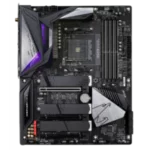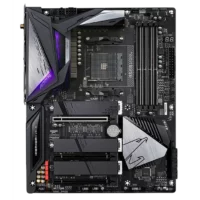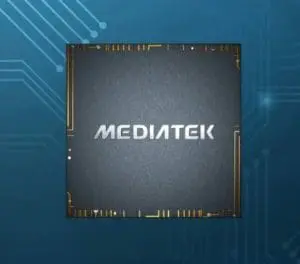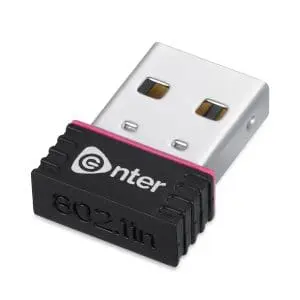AMD B550 chipset drivers4 min read
Ensure That Your AMD B550 Chipset Drivers Are Up-To-Date:
Ensure that your AMD B550 chipset is up-to-date by downloading and installing the latest drivers. These drivers will help your computer run faster and run more smoothly.
They will also let you control various features of your computer, such as USB 10Gbps lanes and SATA Express lanes.
Download AMD B550 chipset drivers (Here)
SATA III ports AMD B550 chipset drivers:
The AMD B550 chipset supports eight SATA III ports. It also supports six USB 3.2 gen2 ports and ten PCIe 3.0 lanes from Ryzen 3000 and 5000 CPUs. Different board models may support different numbers of SATA III ports, USB 2.0 ports, and PCIe x16 lanes.
The B550 chipset is a recent release, and it replaces the B450 chipset. It removes eSATA support but adds more SATA ports. It also features the same 5W TDP.
AMD has said that the B550 motherboards will only support the latest Ryzen processors, and it is expected that future Ryzen hardware will also support the B550. AMD has also confirmed the availability of a Zen2 APU on the B550 chipset.
The B550 chipset is similar to the X570 chipset but has some distinct advantages. Its SATA III ports can be used for storing files. It also supports PCIe 4.0. The B550 chipset is compatible with more memory types and allows for overclocking.
USB 10Gbps lanes AMD B550 chipset drivers:
The AMD B550 chipset is an improved version of the B450 motherboard chipset. It now has four USB 10Gbps lanes, making it compatible with CPUs that support this feature.
The chipset also has two PCIe Gen4 general-purpose lanes in addition to two USB 3.1 Gen2 lanes. It also offers additional support for storage devices and GPUs via the new PCIe Gen4 interface.
USB 3.2 Gen2 is the latest standard, addressing increased performance and data transmission. This chipset also has features such as a Super Durable Ferrite Choke, which provides lower energy loss and higher power stability.
It also has the highest quality solid-state capacitors, which double its lifespan. In addition, it also has the exclusive Iron Slot Protection, which reinforces the PCI-E x16 slots to prevent bending and damage.
The B550 chipset is compatible with AMD Zen 3 CPUs. The B550 chipset is one of the most inexpensive chipsets available today. It also supports PCIe 4.0 lanes, which are twice as fast as PCIe 3.0.
The B550 also features six USB 2.0 ports and eight SATA ports. The processor also supports NVMe PCIe 4.0 SSDs. Hence, the B550 chipset is an excellent choice for many users.
PCIe Gen3 x4 lanes:
The AMD B550 chipset supports PCIe Gen4 but does not support the extension of the lanes to other devices.
This means you need to install a particular driver to use these lanes. Fortunately, the drivers are available online and are very easy to install.
The chipset has eight PCIe lanes on its primary side. There are a further twelve PCIe lanes on the secondary side.
These lanes can be used for a variety of purposes. For example, two routes can be used to connect to a dual-graphics card. Another two lanes can be used to connect to a storage device.
The PCIe lane configuration on the motherboard depends on the chipset. Some motherboards have four M.2 slots, which use the PCIe lanes on the CPU.
Others have two M.2 slots, which use PCIe 3.0 lanes. In the AMD B550, the M.2 slots are connected to the CPU and can use PCIe 3.0 devices.
SATA Express lane:
The AMD B550 chipset supports the SATA Express lane, a new high-speed interface. The chipset is available in three different versions. The X570 model has 16 PCIe lanes.
This is the most advanced of the three, and it is based on the Zen2 architecture, which is similar to Intel’s. The X570 also includes eight PCIe 4.0 lanes, which are flexible. However, they are not compatible with the AMD 3000 APU, which is not yet available.
The B550 Chipset supports full PCIe 4.0 lanes from the Ryzen processor, which means that it supports dual and single video cards.
Additionally, the B550 supports SATA ports and high-speed NVMe drives. The B550 chipset also uses lower power, allowing it to be passively cooled.
The SATA support on the Ryzen chips is equal to USB 4.8Gbps, 10Gbps, and 480Mbps. The B550 and B450 have similar specifications, although the B550 has more PCIe general purpose lanes, which benefit from PCIe Gen3. The B550 also has X370 support.
Warning: Array to string conversion in /srv/users/rasheed/apps/allmobitools/public/wp-content/plugins/neori-social-share-buttons/neori-social-share-buttons.php on line 37
Array




